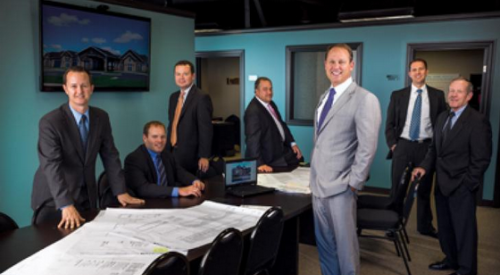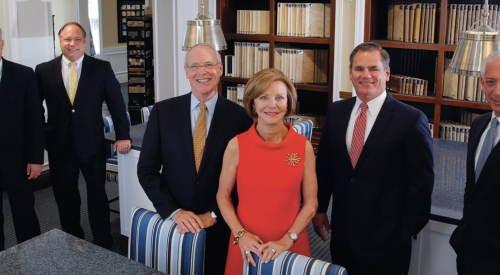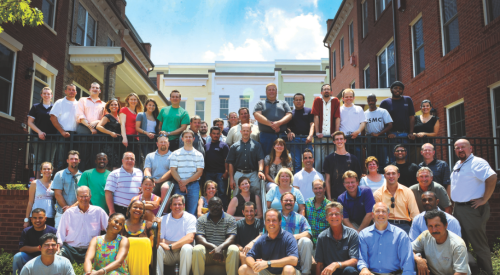| In business for 33 years, Art Danielian of Irvine, Calif.-based Danielian Associates has created trust between management and staff at his 51-person design firm. |
Honesty and clarity are hallmarks of the owners and managers at these 101 companies and create strong manager/staff bonds. These bonds are critical to creating a place where people want to work, says Jib Ellison, managing partner of the Trium Group, a San Francisco-based leadership and strategic consulting firm. He breaks down management credibility and trust into three primary areas: motivation, reliability and competency.
“Credibility is a demonstrable thing,” says Ellison. “Deficiencies in any one of those areas can undermine the overall trust in management. You can have great intentions and be incredibly competent, but if you never do what you say you are going to do when you say you are going to do it, employee trust will diminish.”
For 33 years, Danielian Associates in Irvine, Calif., has been a model of consistency in all three areas, employees say. All 51 employees at the architectural and planning firm are kept in the know. At monthly staff meetings, information about the status of all projects is presented with the previously stated goals for the year. Later employees get a glimpse of the new work coming into the office.
They also have learned it is safe to speak up about issues or problems. “You can be very frank and open with your co-worker,” says senior associate Tom Wong, who has been with Danielian for five years. “It takes the edge off. Our industry takes a lot of creativity, and if you have something that is bothering you, then you lose all the creativity.”
And once a problem is identified, action quickly is taken to remedy it. Not letting problems linger lets the staff focus on design and planning.
Reliability also is evident in annual employee perks. For 25 years the company has closed for a four-day weekend while the entire staff and significant others take an all-expense-paid ski trip to Northern California. The Christmas party is always formal, alternating between a ballroom at an upscale hotel and a 100-foot rented yacht. There is also a beach party each summer. Attendance at these events is voluntary, Wong says, but usually everyone comes.
“Owner Art Danielian treats everyone like a family member,” Wong explains. “To some people that is not important, but to me, I like it that way.”
In Naples, Fla., 4-year-old Gulfstream Homes has shown that credibility can be built in just a few years. Employees say brothers Michael and Stephen Peel, the owners, have created a trusted, family atmosphere.
“I came from a big national builder where management was trained to be separate from the employees,” Stephen Peel says. “There was this feeling that if you got too close there would be respect problems. My concept has always been to treat my employees like family. A lot of people like to say that, but you really have to back it up.”
Gulfstream backs it up in a few ways, says design center manager Jennine Bennet. Company-sponsored picnics and cruises always include spouses and kids, and Bennet, a new mom, says she gets a lot of support from the Peels and her colleagues when she occasionally brings her child to work. Also, the company gives each employee the same flat dollar amount for each home built, sending the message that all will share equally in the company’s growth. In 2001 Gulfstream closed 72 homes and sold 104.
Comstock Homes in McLean, Va., builds credibility by the promises it does not make. No candidate is offered a job with an assurance of promotion. Instead, the philosophy is, work hard for more pay at a job you love.
“Bottom line about the company is that we hire people who are very capable of doing their jobs,” construction vice president Jim Keena says. “We don’t micro-manage them. We give them the liberty to do their jobs their way so that in the end the goal is achieved.”
Michael Twiss, vice president of construction in the company’s Raleigh, N.C., division, prefers this arrangement over jobs he has had with other builders. Twiss says he is given room to try new ideas that top management might not initially love. He cites as an example a time when his division had cost overruns. Twiss’ idea was to let the subcontractors buy the materials for each job in a preordained turnkey deal. The budget overruns soon disappeared. “Even though they were not crazy about it, they allowed me to do it,” says Twiss. “And in the end it saved them money.”










